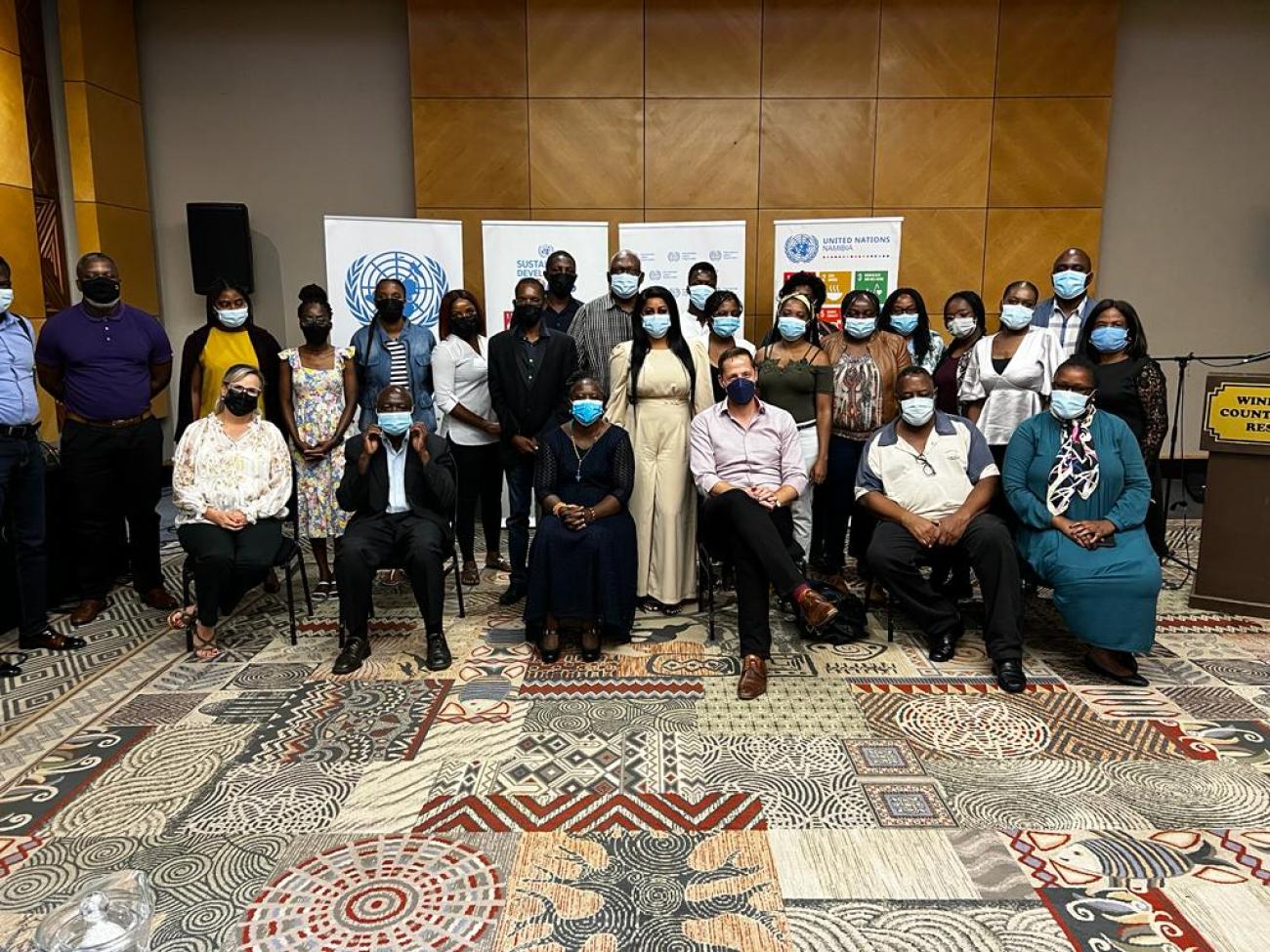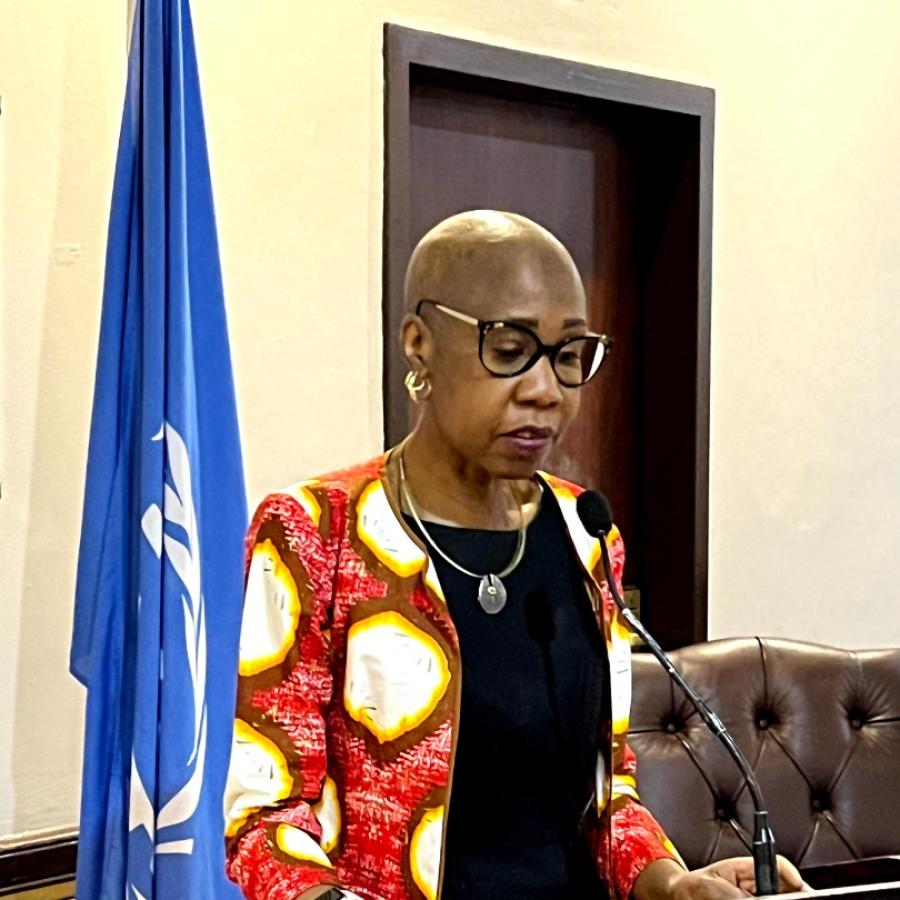Development of Namibia’s 3rd Employment Policy to benefit from UN System support

A training workshop to inform Namibia's 3rd National Employment Policy (NEP3) took place in Windhoek from 1 to 4 March 2022.
Employment is central to Economic Transformation, and as is articulated in SDG 8, it is key to mitigating risk to shocks and to enhancing resilience. Employment is the cornerstone of the links between economic growth and social development.
Unemployment continues to remain one of the triple persistent challenges alongside poverty and inequality, that are holding back the country’s economic transformation. During COVID-19, and in the context of the economy’s slow growth performance during the post-2016 period, the 2018 Labour Force Survey indicates unemployment to have increased from the estimated 33.4%with women and youth, continuing to be the hardest hit.
Results of a survey by the National Statistics Agency (NSA) in 2020 on the impact of COVID-19 on selected businesses in Namibia indicates that 50% of businesses continued to trade partially, whereas 3.5% of businesses had permanently closed: 218 of the 226 businesses were adversely affected and the same businesses expected further adverse effects in the coming months. Most companies resorted to cutting salaries of their employees, or even worse retrenched in an effort to survive the pandemic phase.
Data from the Ministry of Labour, Industrial Relations and Employment Creation in 2020, showed that a total of 12,198 people were retrenched by 896 employers between 1 January to 15 December 2020, of these 8,803 people had been retrenched “due to economic reasons” while 2,842 had been retrenched due to “COVID-19 related reasons”.
Namibia has had two National Employment Policies, with the 2nd one having recently undergone an evaluation. The formulation of the 3rd NEP is based on the findings of the Evaluation Report on Namibia’s Second National Employment Policy 2013-12 – 2016/17 that provides guidance on the mainstreaming of employment, across OMAs.
In her Remarks at the workshop, Ms. Hopolang Phororo, ILO’s Director, Country Office for Zimbabwe and Namibia stated that” I cannot overemphasize the importance of employment in Namibia, namely the increasing unemployment/underemployment, particularly of young people and women. Employment creation is often highlighted in the political manifestos as a priority however the . challenge is how to generate jobs. To achieve this goal, we know that our economies need to be economically sound and the trickle-down effect does not happen. We need to be intentional and be pro-employment focused. The MLIREC, as the designated Ministry responsible for employment will not create jobs, it needs an all-Government approach, including pro-employment budgeting.”

Additionally, she notes that “beyond Government, employers, workers and other stakeholders, including the development partners need to play their parts. It requires a multi-pronged approach - skills development, apprenticeships and job placements are important but are insufficient. The skills training needs to be targeted on what the market requires. Workplace planning is needed – identification of which sectors need which skills, and this is where efforts should be focused. Promoting skills training but without or limited jobs being created results in discouraged graduates, who then delay entering the workforce to acquire another qualification. COVID-19 has also come with several challenges pushing more people into informality and unemployment with businesses closing down.”
The development of the 3rd NEP is timely as the NDP 6 development process is ongoing to ensure that employment is clearly mainstreamed, welcoming that it is in the Harambee Prosperity Plan (HPP II).
The workshop benefited from technical and financial support from the Government of the Republic of Namibia through the Ministry of Labour, Industrial Relations and Employment Creation (MLIREC), the ILO and UN Namibia through the UN Joint SDG Fund. Participants were drawn from the Office of the Prime Minister, National Planning Commission (NPC); several Ministries including Finance; Sport, Youth and National Service and Industrialization, Trade and SME Development. Social partners were represented by the Namibian Employers’ Federation (NEF), the National Union of Namibian Workers (NUNW), the Trade Union Congress of Namibia (TUCNA) and Namibian Informal Sector Organization (NISO). The Labour Resource and Research Institute (LaRRI) Namibia was also represented.
In her Closing Remarks, the Executive Director of the Ministry of Labour, Industrial Relations and Employment Creation (MLIREC), Ms. Lydia Indombo, noted that “the level of unemployment in Namibia requires concerted action and commitment, by all stakeholders. You have my full support in our endeavor to realize the dream to develop an effective Namibia National Employment Policy. Namibia will not disappoint you this time around… Agreements by the team will be fulfilled.”
Presentations at the workshop featured among others: Challenges and opportunities towards employment creation and a human-centred recovery in Namibia; ILO’s revamped approach towards employment promotion and a human-centred recovery: Employment Policy Action Facility; The NEP cycle and NEP formulation process; Macroeconomic and sectoral policies for employment creation; Social Dialogue for employment policies – the role of social partners; Active Labour Market Policies and Public Employment Services; Pro-employment budgeting; and Employment Impact Assessments (EmpIA)
The next step will be the development of the roadmap towards the formulation of the 3rd Namibia National Employment Policy (NEP3), to guide all stakeholders.
Written by



